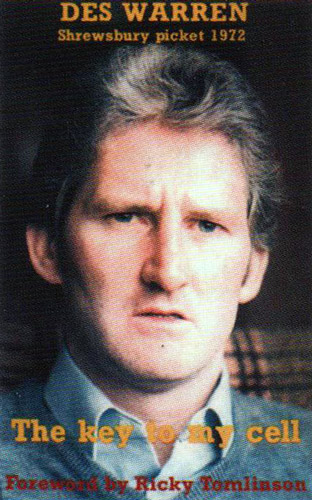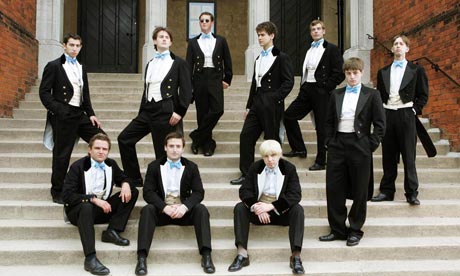Syria: are we getting a true picture?

MASSACRE VICTIMS. But where, and whose? The BBC used this pic to illustrate its news, and they say "the camera does not lie", but the photographer who took the picture tells a different story.
THERE seems little doubt that Bashir Assad's regime in Syria is using massive military repression against its people, and has massacred civilians, just as his father did. Whether those fighting against the regime are all fighting for freedom and progress for the people is another matter. Some of them are at least equally politically capable of massacres, even if not deploying the same military hardware.
A recent article in Socialist Worker was headed "The two sides are not the same", but this grossly oversimplifies the conflict in Syria. There are more than two sides in Syria. There are left-wing forces opposing the regime, but there are also reactionary salafis and returned jihadists who would treat ordinary Syrians with democratic aspirations as at best expendable, and in fact an enemy to be fought.
The Saudi regime which is the most reactionary in the Middle East is sending money and arms to rebels in Syria, at the same time as it sends tanks and helicopters to gun down people fighting for their rights in Bahrain. But Saudi Arabia, besides wanting to remove the Assad regime as an ally of Iran, is a favoured ally and of course arms customer of the imperialist West.
Only last week the Saudis concluded a £1.6 billion contract for Hawk trainers and pilot training with BAE systems. This is a continuation of the massive al Yamamah agreement from Thatcher's days.
So there have been no recriminations over Saudi support for the Taliban, which was also partly aimed against Iran, no condemnations from Western politicians of armed infiltrators and death squads who came over the border from Saudi Arabia into Iraq, and not much said about reports that al Qaida has moved people into Libya and now Syria as well. (Remember the early days of the "war on terror" when we were told the CIA and MI6 could simply cut off its funds?)
The BBC may not be worst of news broadcasters, though Palestine Solidarity campaigners recently held a demonstration in London over the Beeb's failure or unwillingness to report many of the things happening in Occupied Palestine. We hear about Murdoch and Fox news.
But today there comes a heartfelt cry of anger from a news professional over the way the British corporation has misused his work. It should certainly give food for thought.
"Somebody is using illegaly one of my images for anti Syrian propaganda on the BBC web site front page.
"Today Sunday May 27 at 0700 am London time the attached image which I took in Al Mussayyib in Iraq on March 27, 2003 (see caption below) was front page on BBC web site illustrating the massacre that happen in Houla the Syrian town and the caption and the web site was stating that the images was showing the bodies of all the people that have been killed in the massacre and that the image was received by the BBC by an unknown activist. Somebody is using my images as a propaganda against the Syrian government to prove the massacre.
"Al Musayyib, Iraq - May 27, 2003
An Iraqi child jumps over a line of hundreds of bodies, in a school where they have been transported from a mass grave, to be identified. They were discovered in the desert in the outskirts of Al Musayyib, 40 km south of Baghdad. It has been estimated that between 10,000 and 15,000 Iraqis had been reported missing in the region south of Baghdad. People have been searching for days for identity cards or other clues among the skeletons to try to find the remains of brothers, fathers, mothers, sisters and even children who disappeared when Saddam's government crushed a Shi'ite uprising following the 1991 Gulf War.
Marco Di Lauro
Photographer
The use of the picture could be a genuine mistake, perhaps the result of understandable haste to get a picture, and inadequate staff and resources for the news. Some professionals point to the danger of accepting pictures from just any source without checking.
As photographer David Hoffman puts it: "Will we see an explanation from the Beeb? This is what happens when the bean counters dump the experienced professionals in favour of free interns sourcing free pics".
Photo-journalist John D McHugh comments: "As professionals we abide by a code of conduct that outlets such as the BBC can trust, but by accepting and publishing anonymous, unverified submissions, they leave themselves open to this kind of deception. It also highlights the very real dangers associated with using photographs from an unknown source and/or citizen journalist. As professionals we abide by a code of conduct that outlets such as the BBC can trust, but by accepting and publishing anonymous, unverified submissions, they leave themselves open to this kind of deception."
This points to a much wider issue than Middle East coverage of course, in the way news media have been changing, and turning to non-professional (and cheaper)sources of material. Or as in this case, accepting what turns out to be pirated material recycled for a different news story!
All the same, I can't help suspecting the Beeb would have been more circumspect in accepting pictures for a different news story -as it is for reporting some news atories at all.
Finally though, as someone who regularly uses Facebook - from where I received this story about the misused recycled photograph and the photographer's understandable indignation - I am all too frequently asked to look at or share pictures which are supposed not just to illustrate some event but to clinch an argument or prove a point. Seldom do the pictures tell me anything I didn't know, and sometimes one feels embarassed to suggest to the person posting who is on "our" side that the picture they are using looks suspect or posed, so that if I wasn't already convinced it would cause me to have my doubts.
Here in the tale of even a genuine photograph being recycled is a reminder that, contrary to the old saying, the camera - and more especially its misused product - can lie!
Labels: BBC, media, Middle East





![[familycrane.jpg]](https://blogger.googleusercontent.com/img/b/R29vZ2xl/AVvXsEhnIZZEVstu1nwKcV5clssBAS7aq0Hjx16SSAtc9y2F7TndcpUedEIiVcnLNClIBqId04iLCAZntTh1Uhz01j_fuG-uq5ergC6bHFcwP23X0qib0TSG_GkAMhKeU8IFN66aFnDrlA/s1600/familycrane.jpg)








